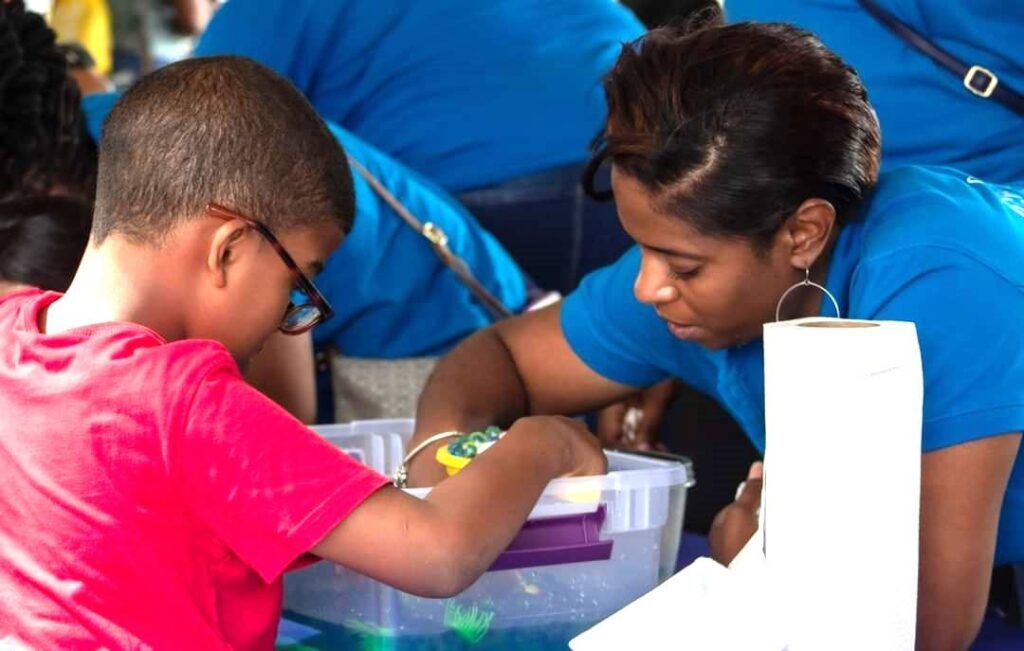Understanding an autism diagnosis

DR RADICA MAHASE
In the past few months, my NGO, Support Autism T&T (Trinidad and Tobago), has been bombarded with calls from parents and caregivers whose children have been diagnosed with autism spectrum disorder.
While I don’t have quantitative data to indicate the exact rise in number of children being diagnosed, I have been speaking to many parents who feel completely lost and distressed after their children have been diagnosed. It is an extremely confusing and stressful time as parents/caregivers try to accept their child’s diagnosis and more so, try to figure out what to do next.
To help parents/caregivers, I am giving some brief pointers here, just to guide you or to offer some kind of comfort as you try to understand and accept your child’s diagnosis.
First, don’t panic. It is just a diagnosis, and you will figure it out. You now have something to work with – now you can do your research on autism, and you can educate yourself about your child’s developmental disability. Many times, parents/caregivers feel lost because they are overwhelmed and just don’t know what to do next. Educating yourself is the first step to help you figure it out. There is information available online, you can reach out to support groups – educating yourself about your child’s disability will give some sense of empowerment.
Second, don’t start thinking that this is the end of your child’s life or life as you envisaged it. Don’t let the diagnosis change the way in which you look at your child. It is very easy to start thinking that life is suddenly so much more difficult because you must make changes to accommodate your child or because of the financial obligations that come with a diagnosis. You start to think about the money you need for therapy and schools. This can be difficult to deal with. You might start to think about all the potential problems and compare your child to your other children as "harder to take care of" and so on. However, remember that your child is still the sweet little one whose smiles, hugs and kisses make your day brighter. This is still your baby, your popo, autism and all!
Third, if you have not already done this, then start your financial planning. In most cases when the child is diagnosed the developmental paediatrician will recommend various types of therapy for your child.
Many parents feel overwhelmed by just looking at the list. They feel depressed just thinking about the finances needed to access all the different therapies. Parents rush to find therapists and then begin to feel despair when they are placed on waiting lists or cannot access therapies at all. Many are forced to cut back spending on one area or the other just so that they can afford therapy sessions.

- Photo Courtesy Rahul's Clubhouse
Thus, financial planning is important, if only to give a clearer picture of where you stand, what you can afford and to prepare yourself mentally.
Fourth, make it a family affair. As you navigate your autism journey you will need the support of family members and friends. You will need a support system. Explain your child’s diagnosis to other members of the immediate and extended family and anyone who will play a role in your child’s life.
This is why educating yourself about autism is so important; you can then share your knowledge. Once they are willing to learn and try to understand and accept the child, the support they provide will help you.
Including siblings in everything, no matter how young they are, is also very important. Help them to understand autism and teach them to interact and include their brother/sister. This will curb any sense of resentment and help them to become advocates for their autistic brother/sister.
Sadly, many parents and caregivers are forced to isolate themselves from relatives who are judgmental or narrow-minded, those who simply refuse to try to understand and/or accept their children. Personally, I don’t think anything is wrong with that, because you want your child to be surrounded by people who will accept and include him/her.
Lastly, don’t be too hard on yourself. Many parents, both mothers and fathers, blame themselves for their children’s diagnosis. Many question what they did wrong, what they did not do, what more they should have done, and so on.
Parents may go through various emotional stages – grief and anger are two of the main ones. As parents, you need to work your way through these emotional stages and get to a place where, mentally and emotionally, you can accept the diagnosis and move forward. In this regard, self-care is necessary. Counselling, journalling, meditation are just some of the tools that parents can use to help them cope.
As author Lisa Jo Rudy said, “If you’re sure the diagnosis is correct, step back, take a deep breath, and give yourself time to react, discuss, and digest the news. No one expects to have an autistic child and it can be (at least sometimes) a tough diagnosis to manage...Autism is a marathon, not a sprint. If the diagnosis is accurate, a child will always have autism. Rushing into action and exhausting your time, money, and energy won’t help. A well-thought-through plan of action can help an autistic child while also allowing the rest of their family members to thrive.”
Radica Mahase is the founder/director of Support Autism T&T

Comments
"Understanding an autism diagnosis"